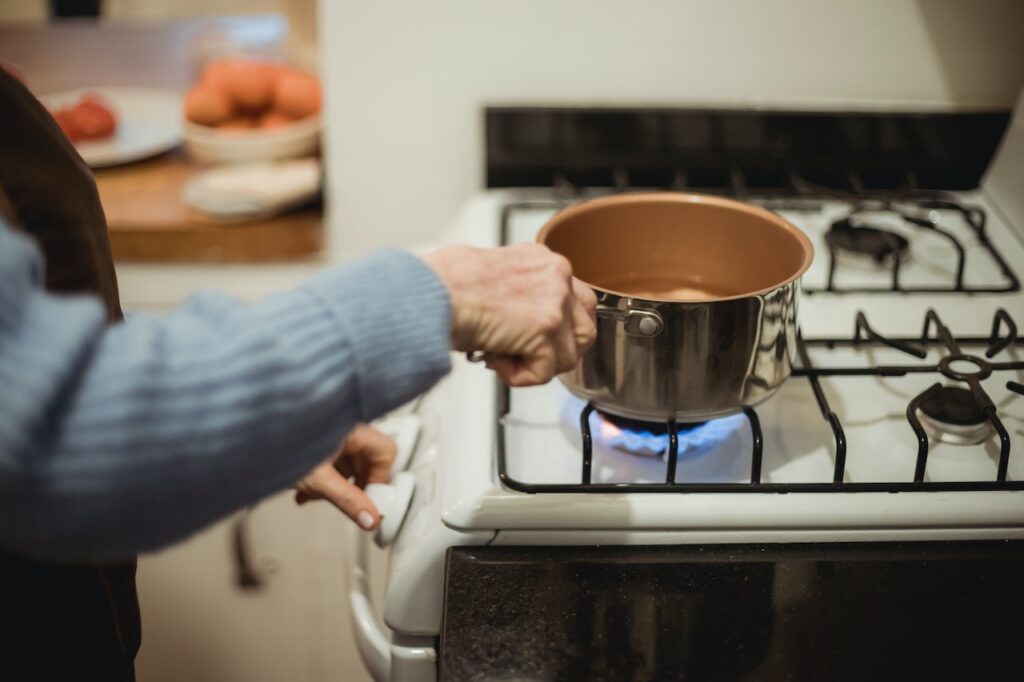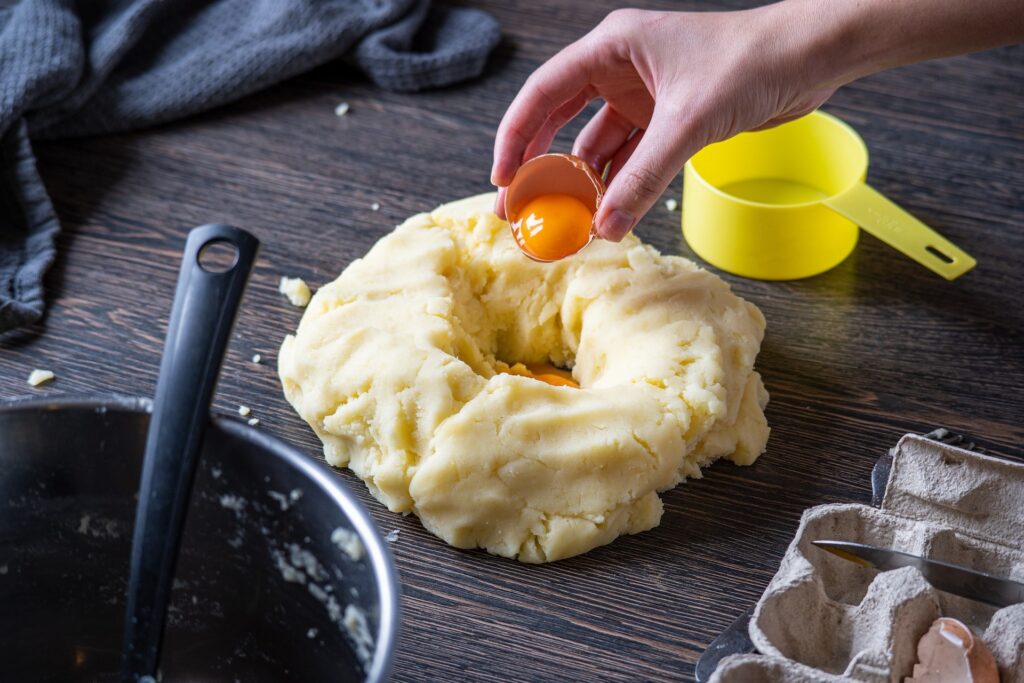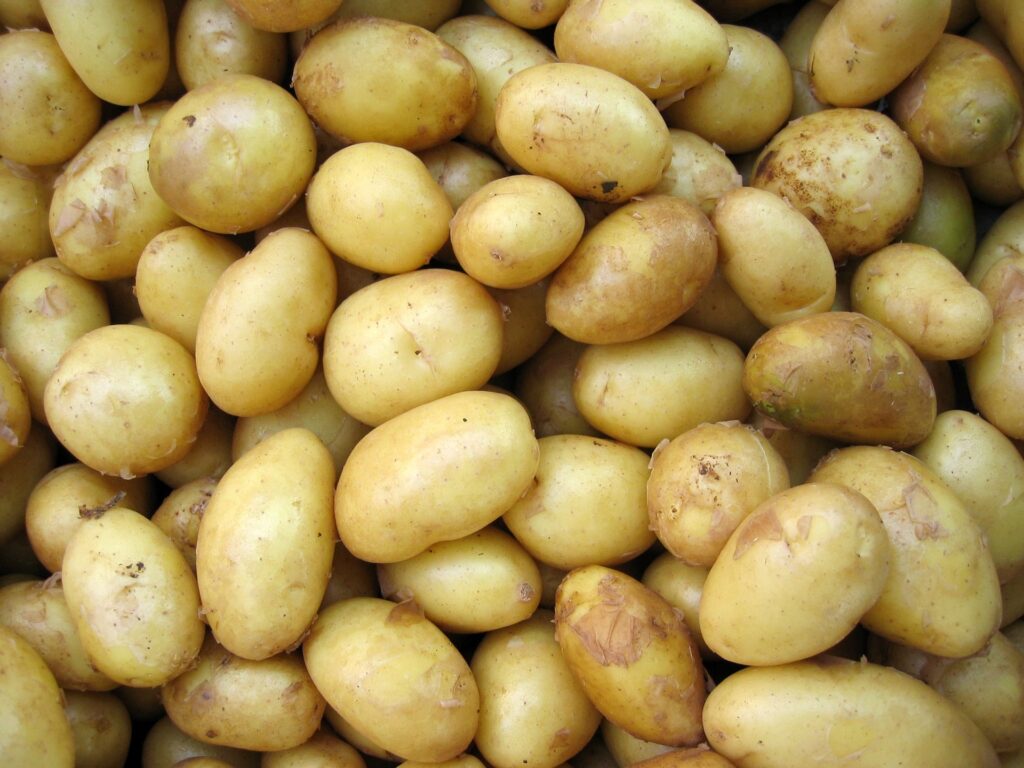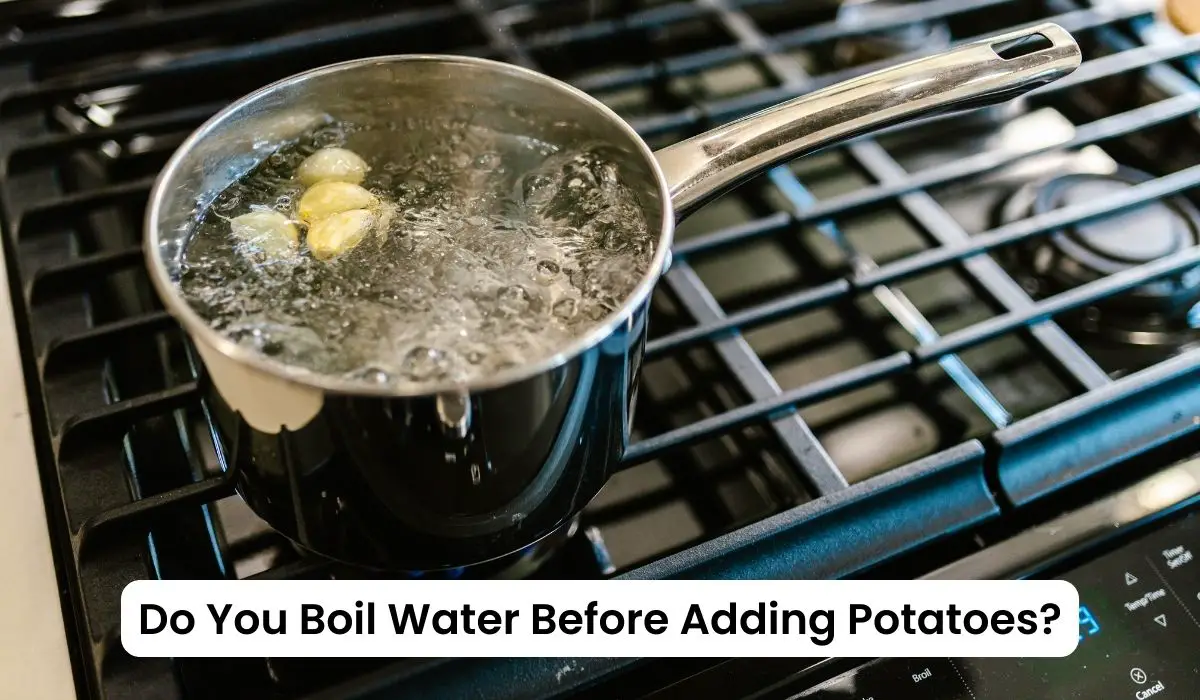Are you tired of waiting forever for your potatoes to cook? Is boiling water before adding potatoes essential? Well, you’ve come to the right place.
In this article, we’ll explore the age-old question: “Do you boil water before adding potatoes?” We’ll dive into the science behind boiling potatoes, discuss the pros and cons of pre-boiling water, and provide practical tips to help you achieve perfectly cooked spuds.
Prepare to discover the truth and enhance your potato-cooking skills!
Table of Contents
Do You Boil Water Before Adding Potatoes?

When it comes to cooking potatoes, there are various methods to choose from, and one of the debates that do you boil water before adding potatoes. Let’s shed some light on this topic and explore the reasons behind each approach.
Boiling water before adding potatoes has long been a traditional practice for many cooks. The idea is that starting with boiling water will help the potatoes cook faster and more evenly. This can be particularly beneficial when you’re working with larger potatoes or if you’re short on time.
Proponents of pre-boiling argue that it helps break down the potato’s outer layer, allowing for quicker heat penetration during the subsequent cooking process. By starting with hot water, the potatoes may also retain more of their natural flavor and texture.
On the other hand, some argue that pre-boiling water isn’t necessary and may even lead to undesirable results. When potatoes are added to boiling water, the sudden temperature change can cause the outside of the potatoes to overcook while the inside remains undercooked. This can result in a less-than-ideal texture and unevenly cooked potatoes.
Additionally, boiling water before adding potatoes may lead to losing some water-soluble nutrients, such as vitamins and minerals, which could leach into the water during the pre-boiling stage. This is a concern for those who prioritize maximizing the nutritional value of their dishes.
Whether or not to boil water before adding potatoes depends on personal preference and your specific cooking method. Pre-boiling the water might be suitable if you prefer faster cooking times and don’t mind sacrificing some nutrients. However, if you prioritize even cooking and want to retain as much nutritional value as possible, you may opt to skip the pre-boiling step.
Regardless of your chosen method, it’s essential to consider a few key tips to achieve optimal results. Firstly, To ensure the potatoes cook evenly, it’s important to select ones of similar size and cut them into uniform pieces. Secondly, always start with cold water if you skip the pre-boiling step. This will allow the potatoes to cook more evenly from the inside out. Lastly, keep an eye on the cooking time and check for doneness by inserting a fork or knife into the potatoes. They should be tender but not mushy.
Whether or not to boil water before adding potatoes is a matter of personal preference and desired cooking outcomes. Both approaches have their merits, so it’s worth experimenting to find the best method that suits your taste and cooking style. Remember, no matter which route you choose, with a bit of practice and attention to detail. You can achieve perfectly cooked, delicious potatoes every time.
Do You Boil Water Before Adding Potatoes For Mashed Potatoes?

If you’re a fan of mashed potatoes, you may have wondered whether it’s necessary to boil water before adding the potatoes. The answer is a resounding yes! Boiling water before adding potatoes is essential in achieving fluffy, perfectly cooked mashed potatoes.
Boiling water helps to cook the potatoes evenly. Starting with hot water ensures that the potatoes cook more uniformly, resulting in a consistent texture. Cold water takes longer to heat up, leading to uneven cooking, where the outside of the potatoes may become mushy while the center remains undercooked.
Another benefit of boiling water is that it reduces the overall cooking time. When you add potatoes to boiling water, the water temperature doesn’t drop significantly, allowing the potatoes to cook faster. This can be especially helpful when you’re in a hurry or preparing a large batch of mashed potatoes for a gathering.
Pre-boiling water also helps to prevent the potatoes from becoming waterlogged. Potatoes naturally contain a high amount of moisture, and boiling them directly in cold water can cause them to absorb even more, resulting in a watery and less flavorful final dish. By boiling water first, you can start cooking quickly and minimize the water the potatoes absorb.
To boil mashed potatoes, fill a large pot with water and bring it to a rolling boil. While the water is heating up, peel and chop the potatoes into evenly sized pieces. Once the water reaches a boil, carefully add the potatoes and cook them until they are fork-tender. This usually takes about 15-20 minutes, depending on the size of the potato pieces.
After boiling the potatoes, drain them well to remove any excess water. Then, return them to the pot or transfer them to a mixing bowl. You can proceed with mashing the potatoes using your preferred method: a potato masher, a ricer, or an electric mixer. Adding butter, milk, salt, and pepper to taste will further enhance the flavour and creaminess of the mashed potatoes. For tips on how long to cook potatoes for mashed, check out our article.
What Happens When You Put A Potato In Freshwater?

When a potato is submerged in freshwater, an interesting phenomenon occurs. As a living organism, the potato has a selectively permeable membrane that allows specific molecules to pass through while restricting others. In this case, the membrane of the potato allows water molecules to move across it.
As soon as the potato is placed in the freshwater, it begins to absorb water through a process known as osmosis. Osmosis is when water molecules go through a semipermeable membrane from an area with less solute concentration to an area with more solute concentration. In this case, the potato’s solute concentration is higher than the freshwater’s.
The water molecules from the freshwater pass through the potato’s membrane and into its cells, where they encounter dissolved salts and other solutes. The water is attracted to the higher concentration of solutes inside the potato, and as a result, the potato absorbs the water. This causes the potato to become swollen and softer due to the increased water content.
Conversely, the opposite would occur if we submerged the potato in salty water. In salty water, the solute concentration is higher compared to the potato. As a result, the water inside the potato moves out of its cells and into the surrounding salty water through osmosis.
Water movement aims to equalize the concentration of solutes on both sides of the potato’s membrane. In this case, the higher solute concentration in the surrounding salty water causes the water within the potato to diffuse outwards. As a result, the potato loses water, becomes dehydrated, and may even fade up.
It’s important to note that the potato’s cells contain various solutes, including salts and other dissolved substances. These solutes contribute to the osmotic properties of the potato and influence how it interacts with different solutions. The osmosis process helps maintain the balance of solute concentrations within the potato’s cells and ensures proper cellular function.
Why Do You Add Salt To Potato Water?
As with pasta water, adding salt to the water in which potatoes will be cooked serves a purpose beyond mere seasoning. When potatoes are heated, their starches break down, causing the cells to open up and absorb water. By seasoning the cooking water with salt, you allow the potatoes to absorb a small amount. However, it’s important to note that the amount of salt absorbed is relatively minimal.
One of the critical reasons for salting the potato water is to enhance the overall flavour of the potatoes. While the salt doesn’t penetrate deeply into the potatoes during cooking, it does add subtle seasoning to the outer layers. This means the potatoes will have a more balanced and flavorful taste even without additional salt after cooking.
Furthermore, salting the water can help improve the texture of the potatoes. Salt in cooking water affects osmosis, which involves water movement across cell membranes. The water’s salt removes moisture from the potato cells, resulting in a slightly drier exterior. This can contribute to a desirable crispy or fluffy texture when the potatoes are roasted, fried, or mashed.
Another advantage of adding salt to the potato water is that it can prevent the potatoes from becoming waterlogged. Potatoes naturally contain a fair amount of water, and boiling them without salt can cause them to absorb even more. Adding salt to the cooking water balances the osmosis process, reducing the water the potatoes absorb. Maintaining the potato’s structural integrity prevents them from becoming too mushy or falling apart.
Lastly, adding salt to the potato water can save you time during seasoning. When potatoes are cooked in unsalted water and then seasoned afterward, achieving a uniform distribution of salt can be challenging. By salting the cooking water, the salt is more evenly distributed throughout the potatoes, resulting in a consistent flavour profile.
Conclusion:
At the end of this article, it is clear that boiling water before adding potatoes is indeed the recommended method for achieving optimal results. By starting with boiling water, you ensure the potatoes cook evenly and efficiently, resulting in a better overall texture.
Additionally, boiling the potatoes from the start helps to retain their flavour and prevent them from becoming waterlogged. So, whether you’re planning to mash, roast, or use them in a recipe, remember to begin with boiling water for perfectly cooked and delicious potatoes every time. Embrace this simple technique and elevate your potato dishes to new heights of culinary excellence. Happy cooking!
FAQs
Can I Boil Potatoes without Salt?
Yes, you can boil potatoes without salt. Salt is optional, and adding it is a matter of taste preference.
What is the Healthiest Way To Boil Potatoes?
The healthiest way to boil potatoes is to leave the skin on for added nutrients, use minimal water, and avoid overcooking to retain vitamins and minerals.
How many salts Do You Put in Potato Water?
Add 1-2 teaspoons of salt per quart (litre) of water when boiling potatoes. Adjust according to personal preference.



